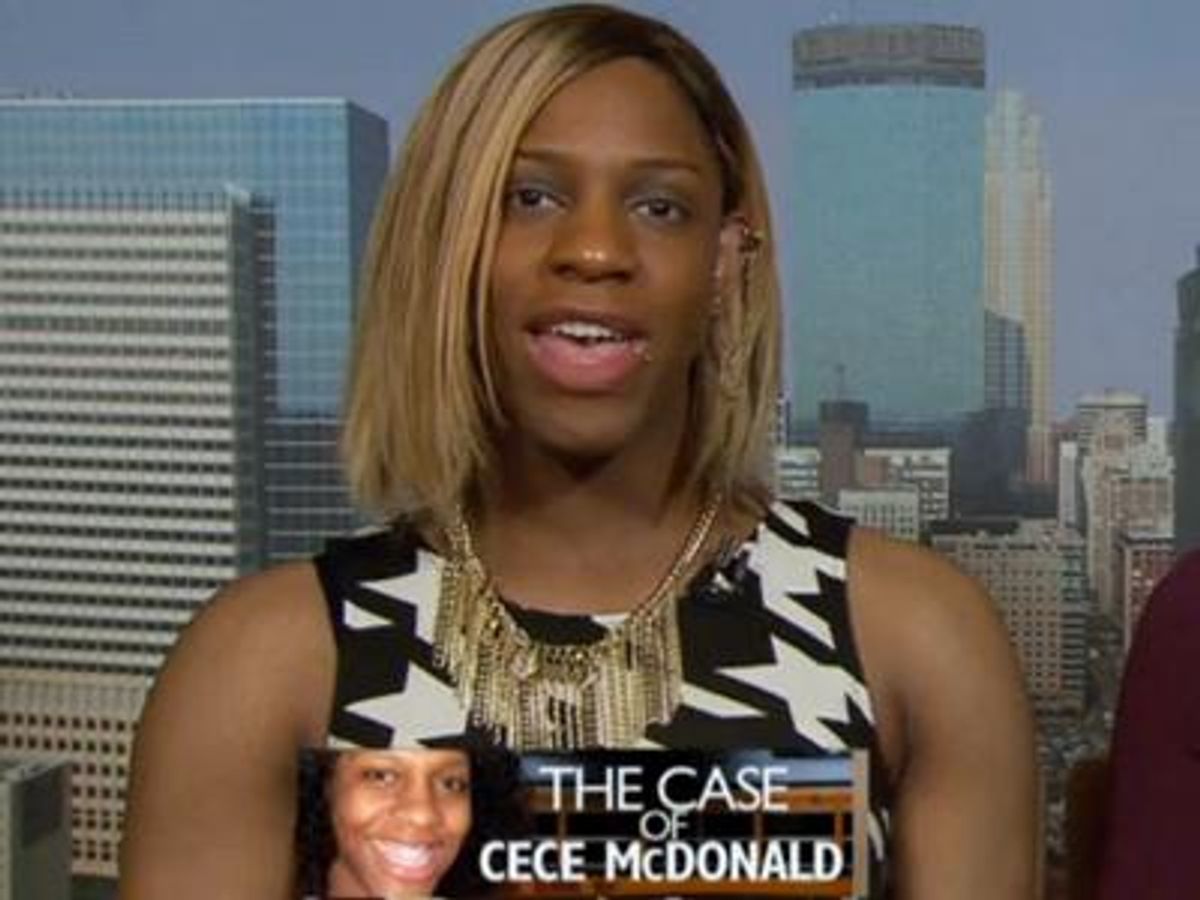On Sunday, CeCe McDonald made her first television appearance since being released from a men's prison earlier this month. Speaking from Minnesota, McDonald joined Katie Burgess of the Trans Youth Support Network, Rea Carey of the National Gay and Lesbian Task Force, and Laverne Cox for a conversation with MSNBC's Melissa Harris-Perry.
The segment focused on McDonald's experience in prison. "I felt like they wanted me to hate myself as a trans woman," McDonald told Harris-Perry. "They wanted to force me to be someone that I wasn't. They wanted me to delegitimize myself as a trans woman, and I was not taking that. As a trans woman -- as a proud black trans woman -- I was not going to allow the system to delegitimize and hypersexualize and take my identity away from me."
Speaking to the issue of prison culture, McDonald said, "Prisons aren't safe for anyone, and that's the key issue."
Burgess, executive director of the Minneapolis-based Trans Youth Support Network, was seated beside McDonald and highlighted some of the organization's broader goals. "The only way that trans folks are going to be safe in prisons is for incarceration of people to end," Burgess said, calling for the decriminalization of drugs and sex work. "People of color and trans folks are finding clear pathways to prison because of laws like that, and that's where we need to put our focus here."
Laverne Cox, one of the stars of Netflix's breakout hit Orange Is the New Black and a prominent trans activist, discussed the stigmatization of trans people. "The very nature of the gender binary model suggests that we transgender people don't exist," Cox said. "There is constantly a denial of the existence of trans people, and because of that denial, we don't get services and are discriminated against disproportionately everywhere. We have to have policies that acknowledge that we exist to even begin to dismantle some of the systemic discrimination that we experience."
The panel discussion highlighted the many challenges faced by trans individuals, and especially trans women of color, offering up policy solutions to some significant obstacles.
Watch the complete interview below.


















































































Viral post saying Republicans 'have two daddies now' has MAGA hot and bothered